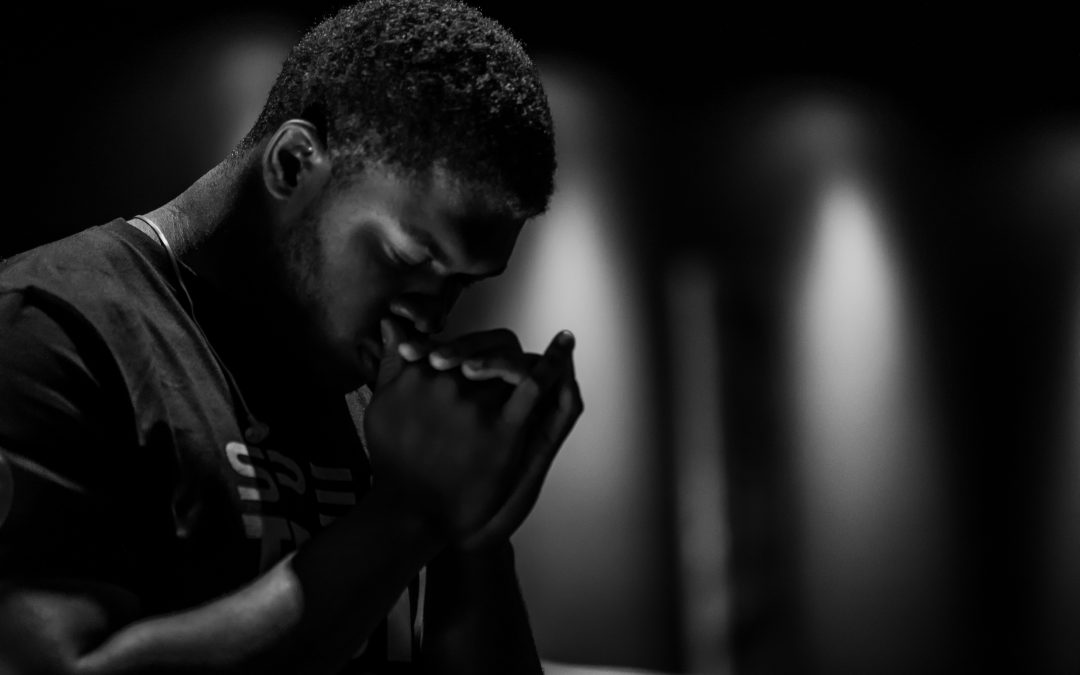
by Gary Reinecke | Jul 31, 2022 | Uncategorized |
In our society we tend to think of a busy schedule as a badge of honor, rushing from one activity or event to the next. We work long hours. We have family obligations. There is an ever-growing list of chores and errands in the back of our minds. We see busyness as productivity but in reality, it does more harm than good. As coaches, we can see when a client is struggling with busyness and can plant a seed for necessary rest.
I recently returned from a four-week holiday (mini-sabbatical) in Melbourne, Australia to spend time with my family and friends. If you don’t know, I am married to Gina, an Aussie; her parents and extended family live “down-under”. It was an amazing time! We took a couple of overnight trips, went to the Broadway production of Hamilton and enjoyed some needed down time. I came back with a greater appreciation for the necessity to periodically, completely unplug from everything possible connected to work and ministry. This allowed my soul and mind to sabbath.
The Need for Rest
If you need proof that we all feel busy and are in need of rest, conduct this experiment: ask ten people how they are doing and just keep track of the responses. How many times out of 10 do you estimate you will receive an answer involving their crazy day or week? 60%? 70%? Most of the time, the answer I get sounds something like this: “I’m so busy – but everything is good.” I would estimate that I hear that response at least 90% of the time.
Self Reflection Questions:
- How would you answer that question: “How are you doing?”
- Did you respond with some form of the answer above?
- What is keeping you up late at night or waking you up in the middle of the night?
How did we get here?
But why are we so busy? Are we taking the time we need to rest, reflect and enjoy the present? Most of us push ourselves harder than we should; we say yes to too many things, we overstretch our time and energy. I put together this list of potential reasons we stretch ourselves beyond our capacity:
- Unaware of our limitations
- Addiction to busyness
- Unwillingness to stop
- Stress
- Faithlessness
This final reason might require some explanation. Faithlessness is something that I struggle with. I like to keep my world under my control – or at least live with the illusion that I have control. When I am at my best, I sleep well. When I try to make things happen in my own strength, anxiety wakes me up in the middle of the night, worrying me about things that are out of my control. What it really comes down to is that I am not trusting the Lord. I’m relying on my own ability to get things done and not resting in the fact that the Lord is active in my life.
Where there is trust, there is rest

Exodus 14:14 states, “The Lord will fight for you: you need only to be still.”
Here is the context for the verse:
But Moses told the people, “Do not be afraid. Stand firm and you will see the LORD’s salvation, which He will accomplish for you today; for the Egyptians you see today, you will never see again. The LORD will fight for you; you need only to be still.
You might be reading this today and need to hear these words. However, being told or encouraged to rest is one thing; internalizing the need for a break and taking action is quite another. I encourage you to take some time every day this week to rest.
Try both Passive and Active Rest:
Passive Rest includes:
- Power naps: 6-20 minutes in length
- REM naps: 90-plus minutes.
Active Rest includes:
- Physically: deep breathing, stretching
- Meantally: meditate, gratitude, listen to soothing music
- Socially: family, friends
- Spiritually: prayer
Dr. A’s Habits of Health (pgs. 407-408) by Dr. Wayne Scott Andersen
One habit I have found helpful in putting my mind at ease is physical activity. When I combine physical activity with meditation, my soul is fed and my body processes the stress that has built-up. An activity I’ve engaged in over the years is Holy Yoga. Did I lose you? Actually, my wife Gina is a certified instructor and has a platform that provides guided meditation throughout the practice. This has been life-giving during Covid. I look forward to my early morning practice on the back patio with the hillside as my backdrop. It gives me a chance to settle my heart and mind, focus on movement and meditate on the Lord’s goodness. It makes my devotional time in the morning more interesting than simply sitting and taking in scripture – it allows me to knead the Word into my soul.
5 Tips to Make Rest a Priority
- Commit to 7.5-9 hours of sleep per night
- Begin to wind-down about 30 minutes before going to bed
- Take a health assessment with a health coach
- Turn off all devices 1-3 hours before going to bed
- Ask your spouse to support you or get on the same time schedule if possible
Coaching for Rest
It is one thing to tell a person that they need to get rest – it is quite another to help them discover it for themselves. Here are 7 coaching questions to help guide a person through their physical health journey:
- Describe “why” it is important for you to focus on getting adequate rest.
- How is your “why” compelling?
- What does success in your rest look like?
- Identify your greatest challenges?
- What changes do you need to make to reach your goal?
- Who do you know that can help you on your journey?
- What is one simple thing you can do that will help you get started?
The 4th Commandment
“Remember the Sabbath day, to keep it holy.”
What does the 4th Commandment teach you about work?
I finish with this response to the question above, taken from The Anglican Catechism:
“My work is a gift of God that can grant me provision and satisfaction, and serve the common good, but neither defines my life nor rules over it.”
Who or what defines you?
Photo by Spencer Selover from Pexels
Photo by Jackson Jorvan from Pexels

by Gary Reinecke | Jul 24, 2022 | Uncategorized |
One of the things I’ve observed over the last 30+ years is that there are many ways to make disciples.
You are limited only by your imagination. From organic to highly programmatic, new approaches are being developed as you read this blog.
I am focusing on the absolute minimum support a discipler or disciple maker requires to make disciples. Specifically if the discipler has adopted a coach approach because the people the disciple coach is engaging with have aborted absolute Truth, are highly individualistic and secular. Because of this dynamic the disciple coach must help the people they engage with discover Truth for themselves. The disciple coach does this through listening and asking questions. It is not a one size fits all approach. Over the previous four weeks, I have been addressing the bare essentials a disciple coach needs to sustain their ministry–I call these essentials the habits of a disciple coach.
Here are the first four habits of a disciple coach:
- Missional Values
- Active Prayer
- Relational Connections
- Disciple Making Cycle
The fifth and final habit is Strategic Partnerships.
Partnerships that support disciple-making relationships are multifaceted and help keep the disciple coach on mission:
- Partnership with God
- Partnership with those the disciple coach has engaged with on their spiritual journey
- Partnerships with trusted mentors
It would be easy to focus on any of these to the exclusion of the other two, or to focus on two and exclude the third. in the best case scenario, all three would be exercised at the same time. While that is optimal, it can be difficult to prioritize all three simultaneously.
Here is a simple example:
As a disciple coach, you and I are doing life in the community of a small group of other disciple coaches who are on mission loving God, loving their neighbors, and making disciples. Partnerships within the group encourage and support the three values. When a disciple takes the next step on their spiritual journey to find and follow Jesus, it is celebrated! This might take the form of an act of service, a generous gift of one’s resources, or taking a step of faith to pray for the very first time. Whatever it is, the group synergistically supports the work of the disciple coach.
The other Strategic Partnerships the disciple coach nurtures is with not-yet Christians. Right now, at the tail end of a global pandemic, developing new relationships can be complicated. Creative ideas are necessary. A church planter that I work with has launched a virtual “Youth Alpha”. This has provided an opportunity to form small pods of young people to emerge where redemptive relationships are being formed. that will growth as the church transitions to in-person gatherings. The youth Alpha not only sustained the plant but grew the church to the point now the plan is well on its way to reaching the vision to launch 5 missional communities. Whatever the needs, the Lord instills creative ideas in the minds and hearts of disciple coaches – even during the most challenging times.
This completes the list of the five habits of a disciple coach! I wonder if you have some thoughts of what else a disciple coach needs to support the work of making disciples. I would love to hear your thoughts and ideas!
Photo by Savvas Stavrinos from Pexels

by Gary Reinecke | Jul 17, 2022 | Uncategorized |
“In order to develop a framework, it is necessary to be clear about what you are trying to accomplish; what are the identifiable traits of loving God, loving others and making disciples? You need to start with the big picture.”
As You Go…Make Disciples by Colin Noyes
In March 2020, we launched our first Leadership Collective. The Leadership Collective facilitates a learning community of up to 15 church planters, pastors, and network leaders to assess and strengthen their leadership pipelines, beginning with the newest disciples of Jesus. After the two-day, in person event, the state of CA shut down! Little did we know then that the shutdown would last as long as it did.
What did we learn about disciple making through the Leadership Collective during the pandemic?
- The mission will always trump religion!
- The Gospel will thrive during times of adversity!
- The process of making disciples must be reproducible!
Let me briefly unpack each of these points:
The mission will always trump religion!
Sadly, Barna reported that 1 in 3 practicing Christians stopped attending church during the pandemic (July 2020). What does this statistic suggest? I’m not a statistician, but I believe that the last two years have done some necessary sifting. And, well, the results speak for themselves.
- Church leaders that were making disciples before the pandemic were able to bear down on the mission.
- Church leaders that weren’t making disciples were reminded what the mission is and made a quick pivot.
The Gospel will thrive during times of adversity!
You might be wondering what thriving looks like? Thriving (in this scenario) is the manner in which followers of Jesus choose to respond to the circumstances surrounding the pandemic. Some chose to remain open, curious, and committed to learning. Others chose to be closed, judgmental, and unwilling to learn. Those who chose the former are thriving and those who chose the latter – not so much.
- Church leaders that had an intentional small group ministry with 80% or more of their adults in small groups survived, and some are thriving.
- Church leaders tested new platforms for virtual ministry to expand their reach.
- Church leaders that did not meet that threshold are playing catch up.
The process of making disciples must be reproducible
Leaders in the Leadership Collective were challenged to share their disciple-making cycle using a napkin, record their explanation, and enter the 3-minute video in a friendly competition. The idea was this: if you can illustrate your cycle on a napkin, it will probably be clear and simple enough to reproduce in other disciples.
This is what we discovered:
- Church leaders with a reproducible process put more and more energy into making disciples that make disciples.
- Church leaders that had a rough idea of their process further refined it to make it more transferable.
Where are you and your congregation?
Below are a couple of resources that might help you assess your disciple-making process, begin coaching disciples, and replicate that process with other disciple makers.
This article was originally published in July 2021. It has since been revised.

by Gary Reinecke | Jul 10, 2022 | Uncategorized |
One of the lessons Jesus lived in front of–and with–his disciples was the importance of relationships. Inside the band of disciples, the relationships were deeper. There was John, then Peter and James, and finally the other nine. Outside the band of disciples was a wide assortment of people Jesus was in relationship with, ranging from religious to non-religious people, many far from God. The lesson Jesus taught his disciples was to live in both worlds.
A couple of weeks ago I shared about understanding your personal Missional Values. Here’s what I mean by missional values:
- Missional = disciples making disciples into the 3rd & 4th generation
- Values = principles that drive missional behaviors
Simply put, Missional Values guide people who are making disciples into the 3rd & 4th generation.
This may seem so basic, but if followers of Jesus focused on Active Prayer (Habit #1) and Missional Values (Habit #2), we might see an upward tick in the caliber of disciples being made.
Now let’s take a look at two areas of focus in RELATIONAL CONNECTIONS:
- Relationships with non-Christians
- Relationships with Christians
It is challenging to live in the tension of developing relationships with people near to God (insiders) and with others who are far from God (outsiders). But this is the way Jesus lived and the way he trained his disciples to live. In my life, it’s easy to make excuses and end up not doing either one very well.
Research tells us that after a relatively short period of time (the most conservative estimate is 2 years, but some say 3-6 months is more accurate) new Christians lose contact with their non-Christian friends. My earliest memories of connecting with outsiders goes back to when I was in elementary school and I felt the compulsion to invite my neighbor to church. I did eventually give an invitation and I thought that was a major accomplishment. I also remember my mom hosting a VBS in our backyard (to my introverted self it felt like an intrusion on my privacy) forcing me to put my faith “out there”. My dad took a bold step and invited all 300+ employees from his plant to a holiday outreach event at our church called the Living Christmas Tree. Together, they led a vibrant ministry to singles and singles-again through our home church. There were fits and starts through my college years as I attempted to connect with outsiders.
In my estimation, the lineage of disciple making is more of a squiggly line than an upward trajectory. And, perhaps that is a good insight to capture here – disciple making is hard work, with little reward (at least in the here and now).
I honestly believe people like my mom and dad have an amazing lineage of people who are now celebrating with their Lord and Savior in heaven. You may be that kind of person. In this habit of relational connection, I want to encourage you to take an honest, inward look and see yourself as God created you. From there, take on the challenge of developing relationships with both insiders and outsiders, leading from your missional values and responding in active prayer. I’ve had the privilege of coaching many amazing leaders over 30+ years. So many of them have soul-crushing stories of how God has used them to empower others to connect with insiders and outsiders through starting and reproducing healthy churches.
You might be wired more like an introvert than an extrovert–I certainly am. That does not give us a pass on relationships. It does suggest that you will build different kinds of relationships than your extroverted friends. You may be an extrovert with an amazing ability to connect with people. But developing connections in and of itself is not the mission; making disciples is. Therefore, be certain that you have a path to help others follow you, as you follow Jesus.
Next week, I’ll be sharing about the Disciple-Making Cycle–the journey of making a disciple!
Find out what is keeping you from flourishing as a disciple maker using a coach approach and what is missing in the kind of support those you are coaching need on their discipleship journey.
DISCIPLE COACH QUIZ
Photo by Kate Kalvach on Unsplash

by Gary Reinecke | Jul 4, 2022 | Uncategorized |
One of the most vital and often overlooked elements of discipleship is prayer. Of course, as Christians, we know that prayer is important; its significance is repeated over and over in the Bible, by our pastors and our entire Christian community. But it can be so easy to fall into the pattern of passive prayer: that is, prayer that we do out of obligation or habit, without thinking or connecting.
For many of us, prayer happens at particular times of the day–before bed or dinner, or maybe first thing in the morning. Maybe you even carve out time intentionally every now and then. But even in your “intentional” time, it can begin to feel like a chore…just some words to recite before moving on with your day. We need to remember that prayer is our deepest and most personal way to connect to Jesus. It’s our lifeline to God and can be one of our strongest tools for making disciples, praying for them to come into our lives and trusting that God will send them our way.
If you still haven’t taken our FREE Disciple Coach Quiz, take it HERE!
Incredible things can happen when we turn passive prayer into active prayer–that is, prayer done with intention, with engagement and love for our Lord and for the people in our lives. I had a friend who had been intentionally building relationships with non-Christians, but there hadn’t been any fruit in quite a while. After a brief conversation with him he stopped and prayed for those he was in relationship with. That day one of the individuals called him out of the blue and wanted to meet to talk about this “Jesus thing”. It is easy to just slide these and other examples into the coincidence bucket, but the Bible shows us the power of prayer and its ability to change lives.
This next week, here are a few things you can pray for to jumpstart your intentional time with the Lord:
- Pray for yourself…that you can be who God needs you to be. That you will be blessed with a heart and mind for the lost that translates to compassion and action.
- Prayer for those God is leading your way. We can pray they are open to the touch of the Holy Spirit and responsive to our actions and words.
- Pray for two random people you encounter each day. Pray for God to fill them with wisdom and understanding: for the things of God. Pray that God uses you to love them, in whatever capacity he desires (from a prayer and a smile to becoming a friend). They may be a Christian, they may not, but they are all God’s children.
Find out what is keeping you from flourishing as a disciple maker using a coach approach and what is missing in the kind of support those you are coaching need on their discipleship journey.
Photo by Jack Sharp on Unsplash





